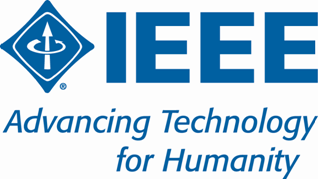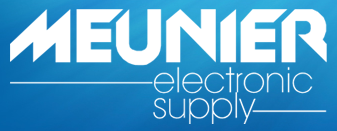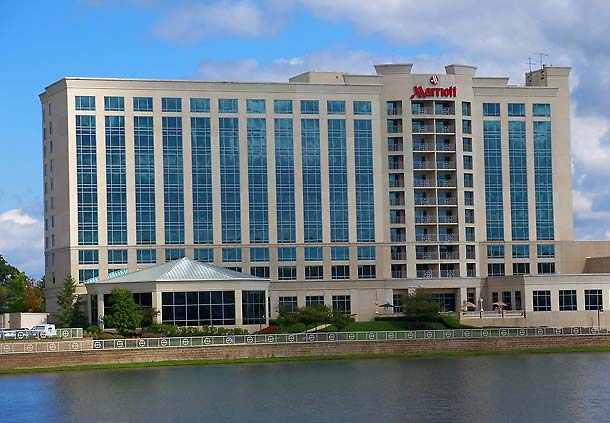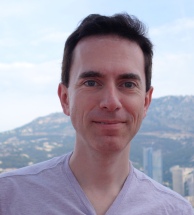 |
Ilya Pollak
Associate Professor
School of Electrical and Computer Engineering
Purdue University
West Lafayette, Indiana
"What is Quantitative Finance and Why Does
Everybody Need to Know Something about It" |
Abstract:
Financial markets have always been plentifully covered
in the news media, books, and aggressive marketing materials,
but especially so during the last few years. Most of the coverage
is unreliable or plain wrong (sometimes intentionally so!),
as we will see based on several examples. It is therefore
exceedingly important to be well informed and to have the
tools that enable one to make intelligent financial decisions
in a variety of situations like buying a house, deciding
what university to study at, or constructing a retirement
portfolio. As we demonstrate through several examples,
simple analysis of readily available data is often very
effective at identifying incorrect statements and avoiding bad decisions.
Ilya Pollak received the B.S. and M.Eng.
degrees in 1995 and Ph.D. in 1999, all from MIT, all in electrical engineering.
In 1999-2000, he was a post-doctoral researcher at the Division of Applied Mathematics,
Brown University. Since 2000, he has been with Purdue University where he is
currently Associate Professor of Electrical and Computer Engineering.
His research interests are in machine learning and statistical models
applied to financial time series analysis, networks, and image processing.
He has collaborated with financial companies on quantitative models for
US equities and trade execution algorithms.
Prof. Pollak received an NSF CAREER award in 2001. He was Lead
Guest Editor of the IEEE Signal Processing Magazine Special Issue on
Signal Processing for Financial Applications in September 2011. He was
the general chair of the IEEE Symposium on Signal and Information Processing
in Finance and Economics at GlobalSIP in December 2013.
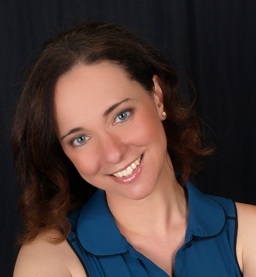 |
Mireille (Mimi) Boutin
Associate Professor
School of ECE and
(by courtesy) Department of Mathematics
Purdue University
Content Highlighting for Large Text Corpora |
Abstract:
Mireille Boutin will present a low-complexity method to summarize the content of a
large body of text documents, such as books, emails, or
even code files. The method automatically extracts large groups of
similar documents and, in a few words, summarizes the content
of each group. We call this process "content highlighting", as
the large group extracted can be viewed as the "highlights" of
the corpus. The method is based on projecting each document
onto a few words called "tags". The projection onto these
tags is local and corpus dependent.
Mireille Boutin was born in Canada
in the province of Quebec.
She received the B.Sc. degree in Physics-Mathematics from the
University de Montreal, and the Ph.D. degree in Mathematics from
the University of Minnesota in Minneapolis under the direction
of Peter Olver. After a post-doctorate with David Mumford and David
Cooper at Brown University, followed by a post-doctorate with
Stefan Muller at the Max Planck Institute for Mathematics in
the Sciences (Leipzig, Germany), she joined Purdue’s School of
Electrical and Computer Engineering. She is now an Associate
Professor with tenure, and holds a courtesy appointment in
the Department of Mathematics. She is an editor of the journal
"Applicable Algebra in Engineering, Communication and Computing",
published by Springer. She is the instigator of "Project Rhea"
an online learning project based on the principle that
there is no better way to learn than to teach. She is the
recipient of the Eta Kappa Nu Outstanding Faculty Award
(Fall 2007) and the Wilfred "Duke" Hesselberth Award for
Teaching Excellence (2008). Her current research interests
include image and video processing, object recognition, automatic
text translation, portable device applications and computational mathematics.
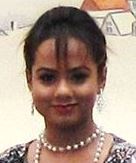 |
Umama Tasnia
Controls Engineer
LHP Software
Women Engineers & Different Engineering Career Paths |
Abstract:
Have you ever wondered what path you would follow to become a corporate
CEO (Chief Executive Officer) or a Professor of Engineering? How about a
Project Engineer or a Project Manager for a large Industry or a Consulting Firm?
This presentation illustrates 4 major careers paths open to you as a engineer
out of the dozens of paths possible in the broad and expanding field of engineering:
- Different Engineering Career Paths:
- Academic/Education: Research & Development
- Industry/ Organization: Design, Quality, Construction, Production, Field Engineering, Technical experts, Management
- Business : Entrepreneurs, Consultancy
- Government Service: Military, Air Force, Navy
- Degree/Experience/License requirements for chosen path
- Statics of Women Engineers
- Women Representation in each path
- Example of Famous Women Leader for Each Career Option
These career paths were developed by engineers in these fields
and represent their knowledge of a logical career progression which will
help you to seek out the career path that best fits your goals and will be most satisfying to you.
Umama Tasnia received the
Bachelor of Science in Electrical Engineering
from New Mexico State University, Las Cruces, NM
in 2013. She also holds a minor in Computer Engineering
Umama has held many leadership roles including
- President, International Students Club (ISC)
- President, Muslim Students Association (MSA)
- Co-President, Philosophers' Circle
- Vice President of Public Relations and Recruitments,
National Society of Collegiate Scholar(NSCS)
- Vice President of External Affairs, IEEE
- Senate Candidate, Associate Students (Student Government) of NMSU
- Vice President of Community Service,
International Student Club, NMSU
- Treasurer, RGH Hall Council, NMSU
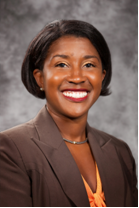
|
Darlene Tolbert Phillips
Sr. Director, External Affairs
Midcontinent Independent System Operator, Inc. (MISO)
Carmel, Indiana
Young Professionals Career Success in the Energy Industry
|
In the course of a diverse and remarkable 20-year career in the energy industry,
Darlene Tolbert Phillips has proven
to be a skilled leader; exceptional thought partner, ardent problem solver
and technical expert. Currently, Darlene is a member of the
Midcontinent Independent System Operator, Inc. (MISO) External Relations
and Government Affairs senior leadership team which engages with the regions'
regulatory and stakeholder community; and, leads a talented team which
handles Corporate Communications, Issues Management and External Training.
Ms. Phillips serves as a key advisor to members of MISOs leadership team
on a wide array of issues that impact internal and external communication
and policy. Ms. Phillips utilizes her technical and market operations expertise
to synthesize complex business functions into easily understandable
documents to assist external parties in better understanding MISO's market and
transmission operations. During her ten-year MISO career, Darlene has
thrived in leadership roles in Operations, Information Technology
and Business Services - affording her the opportunity to leverage
her technical and business background to design business principles
and planning techniques that mitigate risk to MISOs technical
infrastructure as well as working to provide seamless operations
planning for the company�s largest divisions.
Prior to joining MISO, Darlene started her career as an engineer in the
Control Room for Michigan Electric Power Coordination Center (MEPCC) in Ann Arbor, Michigan
and worked as a senior consultant and member of Arthur Anderson
and Bearing Point management team overseeing numerous projects in
both organizations' National Energy Practice Groups working on
key projects for MISO start-up activities;
New York Independent System Operator, ERCOT and many energy related projects.
During her consulting era, she managed a multi-million dollar
portfolio and customer base and was recognized as a well sought
consultant bringing sound technical and business solution to complex
energy challenges.
Ms. Phillips, lives in Carmel, Indiana with her family - husband Eric Phillips;
and, children Sydney and Joshua. Darlene is a licensed attorney in the
State of Indiana; holding a Juris Doctorate degree from Indiana University School
of Law at Indianapolis (cum laude); a Masters of Business
Administration and Bachelor of Science Electrical Engineering
from the University of Michigan, Ann Arbor.

|
Shaoen Wu
Assistant Professor of Computer Science
Ball State University
Muncie, Indiana
Embracing Internet of Things: Challenges and Opportunities
|
Abstract:
When you enjoy a lot of smart devices, are you ready for the
next big thing —Internet of Things (IoT)? IoT is near the door.
It interconnects uniquely identifiable embedded computing like devices
within the existing Internet infrastructure IoT will fundamentally
change the world as past IT technologies did. This talk presents the
concept of IoT, its core components, the opportunities and applications
it can enable, as well as the challenges to address before it can come to life.
Shaoen Wu received a Ph.D. in Computer Science
in 2008 from Auburn University. He is presently an Assistant Professor of
Computer Science at Ball State University. He has held an Assistant Professor
position in the School of Computing at the University of Southern Mississippi,
a researcher scientist position at ADTRAN Inc. and a senior software engineer
position at Bell Laboratories. His current research is in the areas of
wireless and mobile networking, cyber security, cyber-physical systems and
cloud computing. He is a recipient of Best Paper Award of IEEE ISCC 2008 and
ANSS 2011. He has served on the chairs and the committees of several conferences
and as editor for several journals.
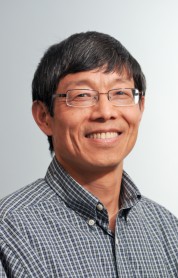
|
Xukai Zou
Associate Professor
Department of Computer and Information Sciences
Indiana University-Purdue University Indianapolis
Indianapolis, Indiana
Design of a Highly User-Friendly, Secure,
Privacy-Preserving, and Revocable Authentication Method
|
Abstract:
A large portion of system breaches are caused by authentication failure,
either during the login process or in the post authentication session;
these failures are themselves related to the limitations associated with
existing authentication approaches.
Current authentication methods, whether proxy based or biometrics based,
are not user-centric and/or endanger users' (biometric) security and privacy.
In this talk, we present a newly designed biometrics based user-centric
authentication approach. This method involves introducing a reference subject (RS),
securely fusing the user’s biometrics with the RS, generating a
BioCapsule (BC) from the fused biometrics, and employing BCs for authentication.
Such an approach is user friendly, identity bearing yet privacy-preserving,
resilient, and revocable once a BC is compromised. It also supports "one-click sign-on"
across systems by fusing the user's biometrics with a distinct RS on each system.
Moreover, active and non-intrusive authentication can be automatically
performed during post-authentication sessions. We formally prove that the
secure fusion based approach is secure against various attacks. Extensive
experiments and detailed comparison with existing approaches show that its
performance (i.e., authentication accuracy) is comparable to existing typical biometric
approaches and the new BC based approach also possesses many desirable
features such as diversity and revocability.
Dr. Xukai Zou is an associate professor
from the Department of Computer and Information Sciences at
Indiana University-Purdue University Indianapolis. His current research
focus is Applied Cryptography, Network Security, Biometrics,
Authentication and Communication Networks. He has been constantly
serving as a reviewer for the primary international journals and
conferences related to cryptography and information and network security
and an invited reviewer for computing review. He serves as an associate
editor for several international journals. He also served as an NSF
panelist and an NIH grant external reviewer. His research has been
supported by NSF, the Department of Veterans Affairs and Industry such as
Cisco and Northrop Grumman.
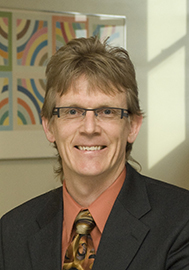 |
Gerhard Klimeck
Director of the Network for Computational Nanotechnology
Reilly Director of the Center for Predictive Materials and Devices
Professor of Electrical and Computer Engineering
Purdue University
West Lafayette, Indiana
The Single-Atom Transistor:
How it was Created and What
it May Mean for the Future
|
Abstract:
The end of Moore's law has been falsely predicted repeatedly over the past 20 years,
while Silicon technology has been driven to seemingly unlimited miniaturization.
One foundational limit of size downscaling, however, will be
hard to overcome - the discreteness of the underlying atomic system.
Let's assume cost and manufacturability issues can be overcome:
Can one reach such atomic limits? Can one make wires that are say 4 atoms wide
and 1 atom tall and still provide Ohmic conductivity [1]?
Can one connect such atomically thin wires to a single impurity atom
embedded in Silicon [2]? If you can build such a thing,
how would you know that it is single impurity atom?
What modeling approaches are needed? How can such modeling software
be disseminated widely? This presentation will address these questions
through experimental and theoretical results of our recently
demonstrated "Single Atom Transistor" and overview nanoHUB.org briefly.
Gerhard Klimeck is a Professor of Electrical and Commuter Engineering at Purdue University.
In the past 20 years at Texas Instruments, NASA/JPL,
and Purdue he has been the driving force for the Nanoelectronic Modeling
Tool Suite (NEMO). He authored and co-authored over 390 peer-reviewed
printed publications and over 220 invited and 410 contributed
conference presentations. These publications have been cited in
the literature thousands of times and result in an h-index of 47
in Google Scholar and 37 in the ISI Web-of-Science. He also
leads nanoHUB.org (
http://tedxtalks.ted.com/video/TEDxPurdueU-Gerhard-Klimeck-Con)
as a director in the service of nanoelectronic simulation and education on the web,
serving over 320,000 users. Gerhard is a fellow of the IEEE,
the American Physical Society, and the Institute of Physics.
[1] Bent Weber, Suddhasatta Mahapatra, Hoon Ryu, Sunhee Lee, A. Fuhrer, T. Reusch,
D. Thompson, W. C. T. Lee, Gerhard Klimeck, Lloyd Hollenberg,
Michelle Simmons,
"Ohm's Law Survives to the Atomic Scale",
Science 335, 64 (2012);
doi: 10.1126/science.1214319
[2] Martin Fuechsle, Jill Miwa, Suddhasatta Mahapatra, Hoon Ryu,
Sunhee Lee, Oliver Warschkow, Lloyd Hollenberg, Gerhard Klimeck,
Michelle Simmons,
"A single-atom transistor", Nature Nanotechnology,
19 February 2012;
doi: 10.1038/NNANO.2012.21
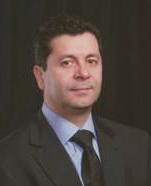 |
Tarik Lahdhiri
Efective Skills for Todays Practicing Engineers
|
Workshop Overview
This Career Workshop provides practical strategies to maximize your career talents presented in a positive and entertaining way. The workshop will discuss the following topics:
Dr. Lahdhiri
received the degree of MS-EE in Communication
Systems in 1990 and the PhD degree in Control Systems in 1995. Dr. Lahdhiri
is currently working for General Motors LLC in Warren, Michigan,
where he is holding the position of Strategy Leader for Real-Time
Control Systems Simulations and Technical Review Board Chair
for Electrical Systems and Subsystems Validation within the Global Electrical Department.
Dr. Lahdhiri is a licensed Professional Engineer (PE)
in the State of Michigan, licensed Project Management Professional (PMP)
by the Project Management Institute (PMI), and Master Black Belt DFSS
certified by General Motors LLC.
Dr. Lahdhiri is a Senior IEEE member and has been
leading several activities within the IEEE organization.
Currently, he is the IEEE Region 4 (Central USA) PACE Chair,
Member of the IEEE-USA PACE committee, Member of the IEEE-USA
Career Workforce Policy committee (CWPC), and member of the
IEEE-USA Employment & Career Service (ECS) Committee.
Dr. Lahdhiri is the recipient of the 2001 IEEE-USA
Professional Achievement Award, the 2004 IEEE-USA Professional
Leadership Award, the 2007 IEEE-USA Citation of Honor Award,
and the 2012 IEEE Region 4 Jack Sherman Award.
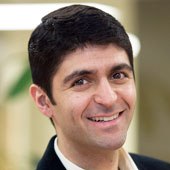
|
Iyad Obeid
Associate Professor
Electrical & Computer Engineering
Temple University
Philadelphia, Pennsylvania
Big Data in Biomedical Engineering
|
Iyad Obeid is an Associate Professor
of Electrical and Computer Engineering with a secondary appointment
in Bioengineering. His research focuses recording and decoding signals
from neural tissue. This includes applications for brain
computer interfaces, brain-in-a-dish studies, and traumatic
brain injury. His lab has made extensive use of Field Programmable
Gate Array (FPGA) technology to make and decode massively parallel
neural recordings. Dr. Obeid is a recipient of the National Science
Foundation CAREER Award as well as a Lindback Award for distinguished teaching.
 |
John Kassebaum
Indiana Professional Licensing,
the Law, and Professional Ethics.
|
Abstract:
This talk will be 10 minutes on Licensure and Indiana Law followed
by 30-40 minutes of presentation and discussion regarding Engineering
Professional Ethics. Any balance of time left will be devoted to
questions and discussion on either topic. The Ethics material John
will be using was developed by Dr. Thom Edgar, Ph.D., P.E.
for use with the University of Wyoming's Orientation to Engineering
course and includes several case studies and the Codes of Ethics for ACM and NSPE.
Dr. John Kassebaum is an entrepreneur and engineering
technologist broadly experienced in research, analysis, and
creative synthesis of new ideas. He received his doctorate from
Purdue University in Electrical and Computer Engineering and is a
licensed Professional Engineer in the state of Indiana.
His past experience includes many successful product deliveries
for military, consumer electronics, industrial automation,
computer/software engineering consulting, and biotechnology
development. Recent experience with Algaeon, a company he
Co-Founded in 2008, includes research and development of biotechnology
intellectual property and experience with microbiological/biochemical
lab activities related to micro-algae. His specialties include
engineering mathematics and analysis, technical research and writing,
creative development of intellectual property, system and software
architectural design and development, and applications of computational
intelligence. When he is not busy with truly mad science, you may
be able to reach him at JAK (at) Kassebaum (dot) Net.
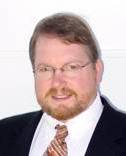 |
William Kassebaum
Start-up Tactics
|
This consultant turned entrepreneur will share his experience
of going through this process. He will address how to build
a start-up company, emphasizing these tasks:
- Financing
- Raising Money
- Bookkeeping
- Valuation
He will also cover issues like hiring/recruiting, dealing with employees,
dealing with board members, business development,
sales & marketing, and What Not to Do!
William R. Kassebaum, P.E. is co-founder and Vice President of Algaeon Inc.
and serves on the Board of Directors. With over 28 years working
in the private and government sectors, Mr. Kassebaum has extensive
engineering, executive management, and entrepreneurial experience.
His pioneering work at the Naval Air Warfare Center earned
him and his team the prestigious National Performance Review
"Heroes of Government Reinvention" award presented by the Secretary
of Defense and the Chairman of the Joint Chiefs of Staff
on behalf of Vice President Al Gore. He led teams developing
award winning products at private companies such as Escient, LLC.
In 1997 Mr. Kassebaum co-founded Stellarwind Development, LLC, the
incubator company for Algaeon, Inc. Mr. Kassebaum holds an
MSEE from Purdue University and is a licensed Professional
Engineer in the State of Indiana. He is a past Chair and Director
of the Central Indiana Section of the IEEE. He currently serves
on the IEEE-USA Board of Directors as Vice President Career &
Member Services, is a Founder and Co-Chair of the Central
Indiana Engineering Consultants’ Network, and Past Chair of the
Alliance of IEEE Consultants’ Networks (AICN), a committee of the IEEE-USA.
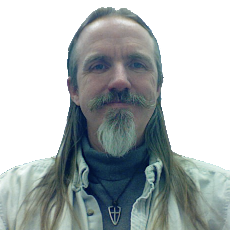
|
Mike Cowper
Sr. Systems Administrator at Midwest Internet, Inc.
The Indianapolis Metropolitan Cyber Defense
Force
Under the Auspices of the
Indianapolis Division of Homeland Security |
Abstract:
Cyber terrorism is a real threat to all of us whether we know it or not.
Cyber security touches all aspects of our lives. Mike Cowper will talk
about some real events that have taken place around the world
highlighting the issues. He will also talk about the "Deep Web" that
people don't normally see, where organized crime and gangs conduct
business. The talk will end with a few tips about things that you can do
to help keep yourself, and everyone, safer.
Mike Cowper
is a member of the DHS Cyber Defense Force. He first began
working with computers as a student at Purdue University in 1981. In
1994 he became the first full-time employee of the first commercial
Internet company in Indiana and has been managing networks of servers at
Internet Service Providers and Internet Hosting Companies ever since.

